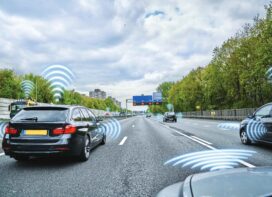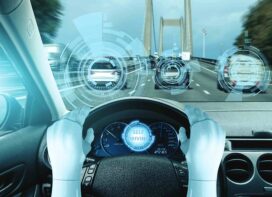The toll operations in India till now were mainly manual but, the fast growing traffic volume on the highway network across the country necessitated the introduction of Electronic Toll Collection (ETC). Going a step further, the government has the goal of nationwide ETC interoperability. Sapna Srivastava reports
Tolling in India differs from the practices in other countries in many ways. For instance, most other countries provide an alternative toll free road to the road user as an option to not use the tolled road. Also, the tolled roads are ‘closed system’ with toll plaza at every entry and exit of the tolled road and toll charged, based on the distance traveled. Whereas, in India, the alternative toll free road option is generally not available and the ‘open system’ tolling adopted entails fixed toll charges irrespective of the actual distance travelled. But, the toll rates in India are lower in terms of actual value compared to other countries (but higher in the context of per capita income). However, when it comes to using technology, the Indian highways are fast catching up with the global peers.
Highway Modernization Plan
 With India’s steady economic growth, the country’s road infrastructure needs to keep pace with the rapid development. Electronic Toll Collection (ETC) is part of that broad initiative of the Indian government and road concessionaires to improve the nation’s road network. NHAI-promoted Indian Highways Management Company Limited (IHMCL) is implementing nation-wide interoperable electronic toll collection program across 350 toll plazas in the country which is expected to roll out by April 2016. The first phase of the initiative will cover the busy highway corridors allowing vehicles fitted with electronic tags to sail through, reducing congestion and speed up freight.
With India’s steady economic growth, the country’s road infrastructure needs to keep pace with the rapid development. Electronic Toll Collection (ETC) is part of that broad initiative of the Indian government and road concessionaires to improve the nation’s road network. NHAI-promoted Indian Highways Management Company Limited (IHMCL) is implementing nation-wide interoperable electronic toll collection program across 350 toll plazas in the country which is expected to roll out by April 2016. The first phase of the initiative will cover the busy highway corridors allowing vehicles fitted with electronic tags to sail through, reducing congestion and speed up freight.
Ashwani Sharma, General Manager, GVK Jaipur Expressway Pvt. Ltd clarifies, “In India, the objective of introducing tolls especially on BoT basis is to have safe and quality roads that would result in saving of fuel, wear and tear of vehicles and time for the commuters. Introduction of Inter-operable ETC is a step forward in the same direction wherein there would be further saving in the time spent on payment at toll plazas. Currently the toll fee is being collected in cash or through smart cards. In both the instances, user needs to stop at the toll booths. With interoperable ETC, vehicle owners wouldn’t have to stop at toll plazas to pay the toll charges, reducing the travel time as well fuel consumption. They will be able to keep track of their toll transactions. And as there is no physical cash involved in ETC transactions, it will help reduce the cash handling, particularly useful for long distance fleet. Operators. In addition, ETC lane throughput is high as compared to manual and semi –automatic toll collection, hence it will reduce the traffic queue lengths at toll plaza without addition of new lanes.”
Technology
The program comprises RFID technology conforming to EPC Gen-2, ISO 18000-6C standards for Automatic Vehicle Identification (AVI) and an open platform for developing congestion or cordon pricing, automated payment of parking fees, fines/challans, road tax and other duties and services. It would also include setting up of Central Clearing House (CCH) for clearing and settlement of toll transactions.
Point of Sales (PoS) would be established at toll plazas, fuel stations, vehicle service stations etc. throughout the country where the road user can register for the ETC Program to obtain a RFID tag affixed on the windshield, that uniquely identifies his vehicle. The vehicle then would be able to electronically pay toll charges at the dedicated ETC lanes without stopping at toll plazas. ETC accounts can be recharged using various payment options available at PoS or through online portal.
The project owners enrolling with IHMCL’s ETC program will offer dedicated ETC lanes at their toll plazas integrated with the CCH wherein, when a vehicle approaches, the plaza ETC systems will read the RFID tag, generating ETC transaction files and checking positive account balance before allowing the vehicle to pass. The ETC transaction files generated at toll plazas are sent to CCH for debiting appropriate toll fee from the account of registered vehicle and crediting the same to respective toll collection agency. The road users will also get SMS alert for each ETC transaction.
According to Sharma, Electronic Toll Collection has benefits for both operator as well as commuter. “Due to lesser manpower requirements, operator is benefitted, provided that the aforesaid factors are controlled through suitable legislations and enforcement by State Governments. Moreover, government is contemplating to provide incentives to ETC Users through discounts in the toll fee. But, there is no communication yet to the developers from National Payments Corporation of India (NPCI),” he pointed out.
 TrafficInfraTech Magazine Linking People Places & Progress
TrafficInfraTech Magazine Linking People Places & Progress



